I discovered gravity’s sway,
Laws of motion I did portray.
With an apple, my fame did rise,
Who am I? Solve this, be wise!
Isaac Newton (1643-1727):
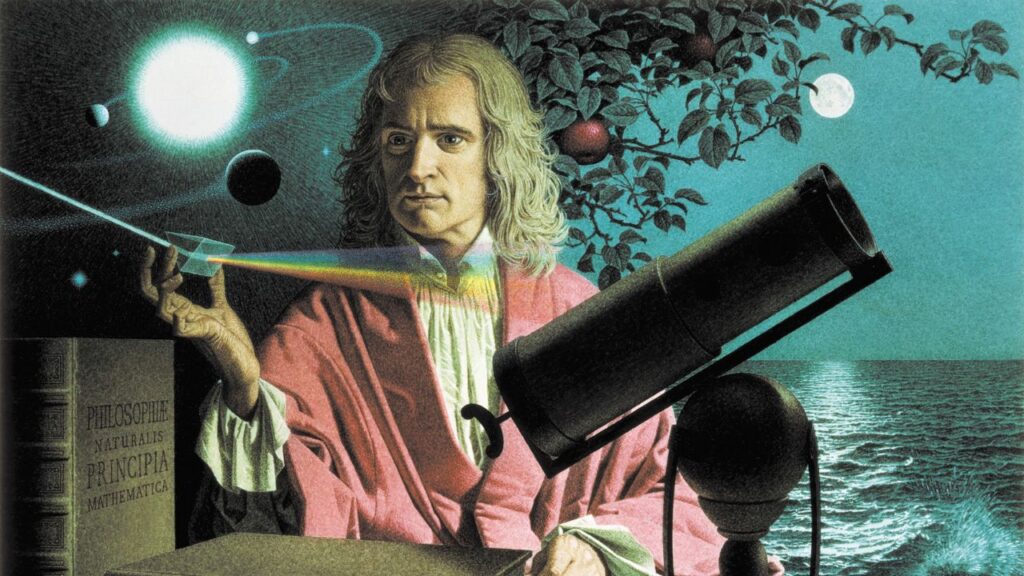
Isaac Newton was an English physicist and mathematician. His groundbreaking work in physics and mathematics during the late 17th century revolutionized our understanding of the physical world. Newton formulated the laws of motion and universal gravitation, laying the foundation for classical mechanics. His monumental book “Philosophiæ Naturalis Principia Mathematica” remains one of the most influential scientific works of all time.
E=mc², a formula profound,
Relativity’s secrets I did expound.
The universe’s mysteries I did unravel,
Name this genius who made science travel.
Albert Einstein (1879-1955):
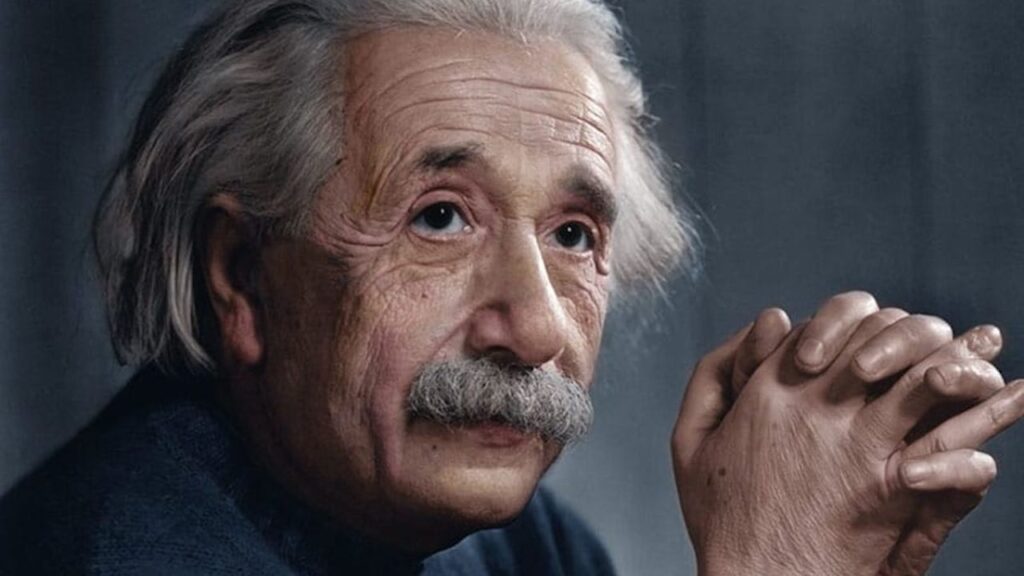
Albert Einstein, a German-born theoretical physicist, is widely regarded as one of the greatest scientists in history. During the early 20th century, Einstein developed the theory of relativity, which transformed our understanding of space, time, and gravity. His equation E=mc² demonstrated the equivalence of energy and mass, providing the theoretical framework for nuclear energy. Einstein’s work also had profound implications for cosmology and quantum mechanics.
In a conflict, I took my stand,
Defying old beliefs with facts at hand.
The stars, the moon, I sought to see,
“Eppur si muove!” I exclaimed with glee.
Galileo Galilei (1564-1642):

Galileo Galilei, an Italian astronomer, physicist, and mathematician, played a crucial role in the scientific revolution of the 17th century. His improvements to the telescope allowed him to make important astronomical observations, including the moons of Jupiter and the phases of Venus, which supported the heliocentric model of the solar system proposed by Copernicus. Galileo’s work challenged prevailing beliefs and laid the groundwork for modern observational astronomy.
On the voyage of life’s great tree,
I unveiled nature’s diversity.
Evolution’s architect, I came to be,
My name’s synonymous with origin’s key.
Charles Darwin (1809-1882):

Charles Darwin, an English naturalist, biologist, and geologist, revolutionized our understanding of life on Earth. His theory of evolution by natural selection, presented in his landmark book “On the Origin of Species,” published in 1859, provided a comprehensive explanation for the diversity of species and the process of gradual change over time. Darwin’s work had profound implications for biology, anthropology, and our understanding of the natural world.
Electricity’s wizard, my name resounds,
Inventions and ideas, my mind astounds.
AC power and My coil, my fame persists,
Unravel my identity from the electric mists.
Nikola Tesla (1856-1943):

Nikola Tesla, a Serbian-American inventor and electrical engineer, made significant contributions to the development of electrical power systems in the late 19th and early 20th centuries. He championed the use of alternating current (AC), which allows for efficient transmission of electricity over long distances. Tesla’s inventions and discoveries in the field of electromagnetism laid the foundation for modern power distribution and had a transformative impact on society.
Radioactive secrets I did explore,
Nobel laureate in science, I did score.
A pioneer in fields, both bright and dark,
A double Nobel winner, leave your mark!
Marie Curie (1867-1934):
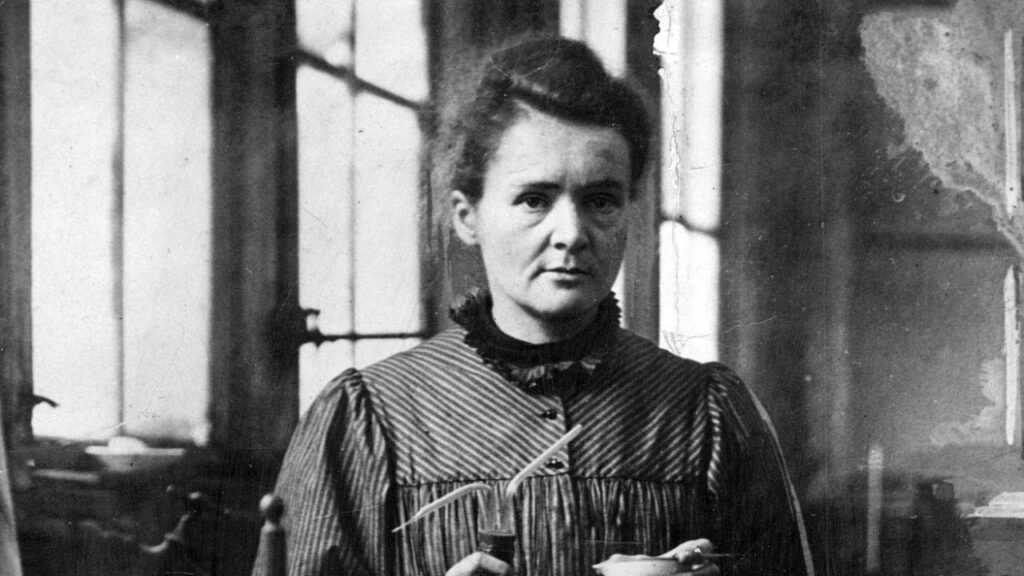
Marie Curie, a Polish-born physicist and chemist, was a pioneer in the field of radioactivity. She conducted groundbreaking research on radioactive elements, discovering two new elements, polonium and radium. Curie’s work laid the foundation for the development of nuclear physics and had significant applications in medicine, leading to the use of radiation for cancer treatment. She was the first woman to win a Nobel Prize, receiving two Nobel Prizes in Physics and Chemistry.
Against germs, I waged a fight,
A technique after my name, my shining light.
Microbes’ secrets I unraveled,
Name this scientist who triumphed and battled.
Louis Pasteur (1822-1895):
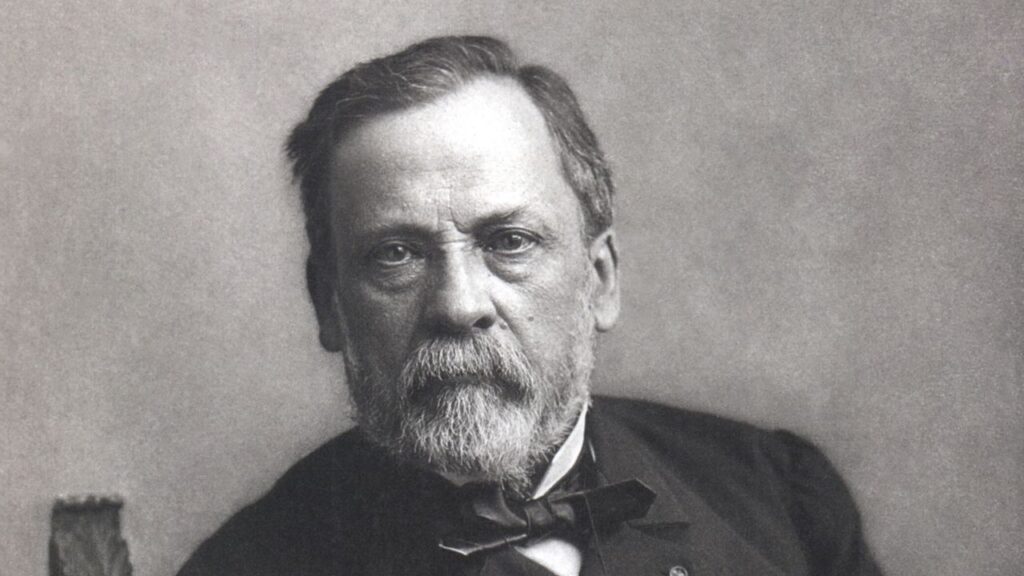
Louis Pasteur, a French chemist and microbiologist, made monumental contributions to the fields of medicine and public health during the 19th century. His experiments and observations disproved the theory of spontaneous generation and provided strong evidence for the germ theory of disease. Pasteur developed the process of pasteurization, which helped prevent the spread of harmful microorganisms in food and beverages. He also made significant advancements in immunization, including the development of vaccines for diseases such as rabies and anthrax.
From penicillin’s accidental birth,
A revolution in medicine’s worth.
With mold, I saved lives from infection,
My discovery left a lasting impression.
Alexander Fleming (1881-1955):

Alexander Fleming, a Scottish biologist and pharmacologist, made one of the most significant medical discoveries of the 20th century. In 1928, Fleming accidentally discovered the antibiotic properties of penicillin, a mold that inhibited the growth of bacteria. His discovery revolutionized the treatment of infectious diseases and led to the development of numerous life-saving antibiotics.
Peas and genes, I did combine,
Heredity’s laws, I did define.
The father of genetics, my work revealed,
Unlock my identity, and you’ll be thrilled.
Gregor Mendel (1822-1884):

Gregor Mendel, an Austrian monk and botanist, is widely recognized as the “father of modern genetics.” In the mid-19th century, Mendel conducted extensive experiments with pea plants, meticulously studying their patterns of inheritance. Through his work, Mendel formulated the fundamental laws of inheritance, which established the concepts of dominant and recessive traits. His discoveries provided the framework for understanding genetic inheritance and laid the foundation for modern genetics.
Electromagnetic waves I did conceive,
The equations of light, I did believe.
With My equations, my fame was spread,
Solve this puzzle, and reveal my name instead.
James Clerk Maxwell (1831-1879):
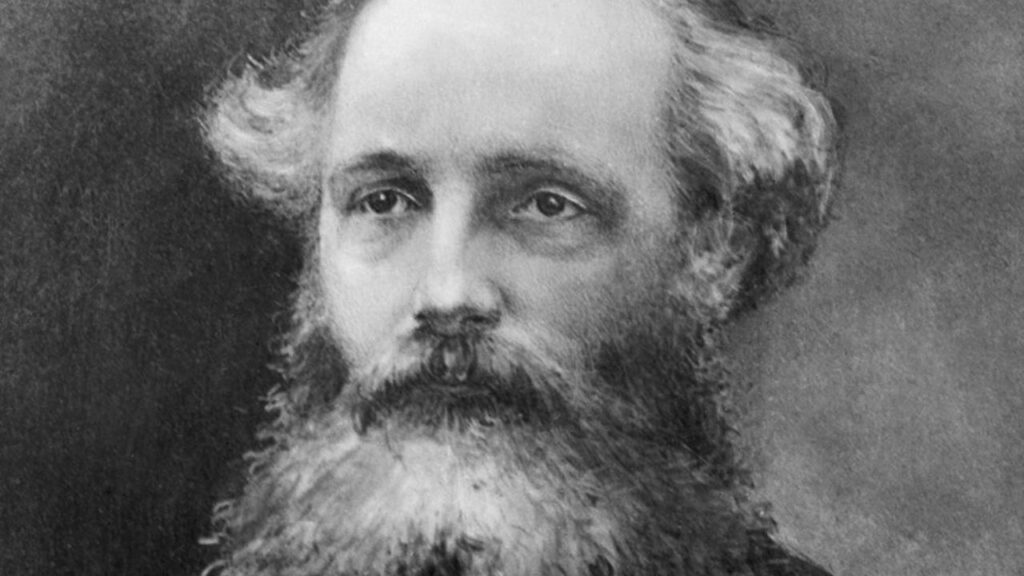
James Clerk Maxwell, a Scottish physicist, is known for his foundational work in electromagnetism during the 19th century. Maxwell’s equations unified the fields of electricity and magnetism, demonstrating that they are two aspects of the same phenomenon known as electromagnetism. His equations also predicted the existence of electromagnetic waves, including light. Maxwell’s work provided the mathematical framework for understanding and harnessing electromagnetism, leading to advancements in telecommunications and the development of technologies like radio and television.
Invention and innovation, my path was set,
The phonograph and the lightbulb, you can’t forget.
A prolific inventor, with a mind so bright,
Solve this riddle and shed some light.
Thomas Edison (1847-1931):

Thomas Edison, an American inventor and businessman, made significant contributions to various fields during the late 19th and early 20th centuries. He is best known for developing practical electric lighting systems, including the incandescent light bulb, which revolutionized daily life. Edison held over a thousand patents, spanning a wide range of inventions, including the phonograph, motion picture camera, and the electric power industry.
Combining elements, I did define,
The foundations of chemistry, a legacy of mine.
Oxygen, hydrogen, I studied with precision,
Name this scientist of scientific vision.
Antoine Lavoisier (1743-1794):
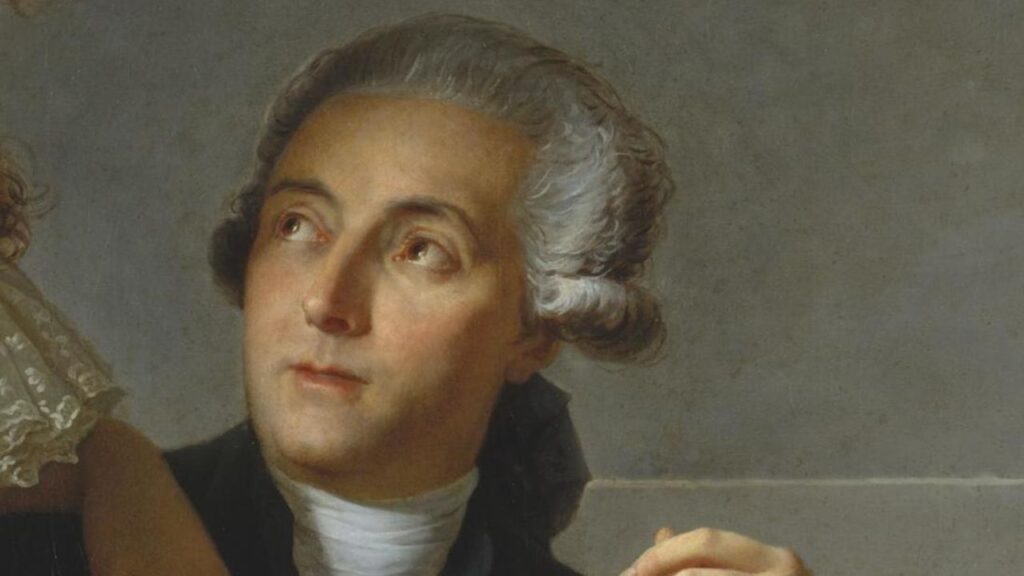
Antoine Lavoisier, a French chemist, is considered the father of modern chemistry. During the late 18th century, Lavoisier conducted numerous experiments that transformed the field of chemistry. He established the law of conservation of mass, demonstrating that matter is neither created nor destroyed but can undergo chemical transformations. Lavoisier also identified and named oxygen and hydrogen, making significant contributions to the understanding of chemical elements and chemical reactions.
Elliptical paths, the planets do trace,
Laws of motion I did embrace.
The mathematician of celestial dance,
Solve this riddle, take a chance.
Johannes Kepler (1571-1630):

Johannes Kepler, a German astronomer and mathematician, made profound contributions to our understanding of planetary motion during the late 16th and early 17th centuries. Kepler formulated three fundamental laws of planetary motion based on meticulous observations and mathematical calculations. These laws describe the elliptical orbits of planets around the sun, the equal area law, and the relationship between a planet’s orbital period and its distance from the sun. Kepler’s laws laid the groundwork for Isaac Newton’s laws of motion and gravitation.
Renaissance man, of talents grand,
From art to science, my genius spanned.
The Vitruvian Man and Mona Lisa’s smile,
Name this polymath, think for a while.
Leonardo da Vinci (1452-1519):

Leonardo da Vinci, an Italian polymath, is widely regarded as one of the most diversely talented individuals in history. He made significant contributions to various fields, including art, science, and engineering, during the Renaissance. Da Vinci’s notebooks contain numerous scientific sketches and inventions, encompassing areas such as anatomy, biology, physics, and engineering. Although many of his ideas were not fully realized during his lifetime, his work demonstrated an extraordinary breadth of knowledge and foresight.
Electromagnetic fields I did explore,
The motor, the generator, inventions galore.
From induction to experiments grand,
Solve this riddle, take a stand.
Michael Faraday (1791-1867):
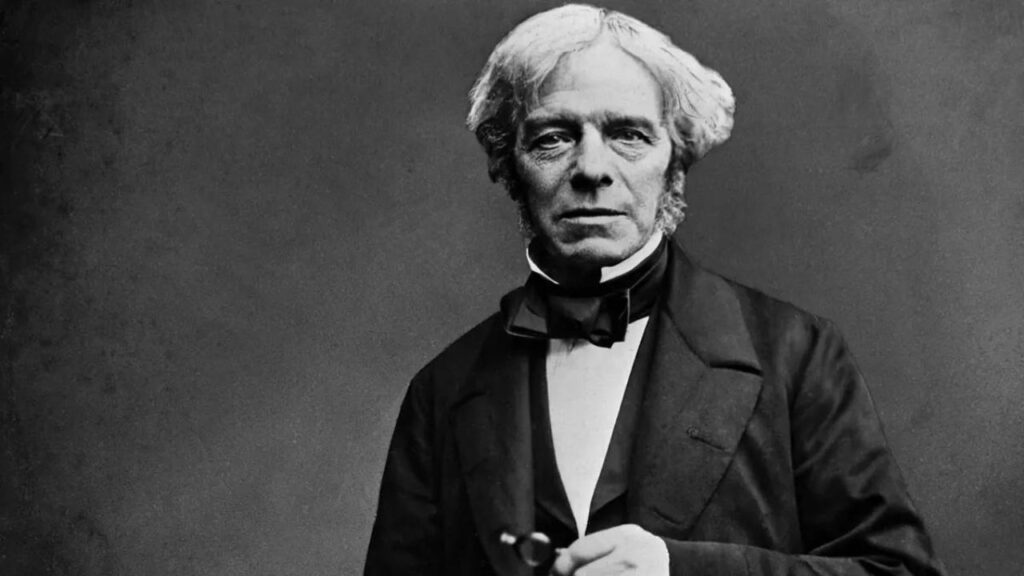
Michael Faraday, an English physicist and chemist, made groundbreaking discoveries in electromagnetism during the 19th century. His experiments and observations led to the development of the first electric motor and the generator, demonstrating the interconversion of electrical and mechanical energy. Faraday also discovered the laws of electrolysis, which laid the foundation for our understanding of electrochemistry. His work had far-reaching implications for the fields of electricity, magnetism, and chemistry.
Enigma machine, code-breaking art,
During wartime, I played a crucial part.
My Name’s test and computing machines,
Name this mathematician, solve the scenes.
Alan Turing (1912-1954):

Alan Turing, a British mathematician and computer scientist, is considered the father of computer science and artificial intelligence. During World War II, Turing played a crucial role in breaking German Enigma codes, contributing to the Allied victory. Turing developed the concept of a universal machine, known as the Turing machine, which laid the theoretical groundwork for modern computing. His work on algorithms and computational theory has had a profound impact on the development of computers and artificial intelligence.
The atomic nucleus I did dissect,
Radioactivity, I did detect.
A gold foil experiment, a groundbreaking feat,
Solve this puzzle, a scientist you’ll meet.
Ernest Rutherford (1871-1937):
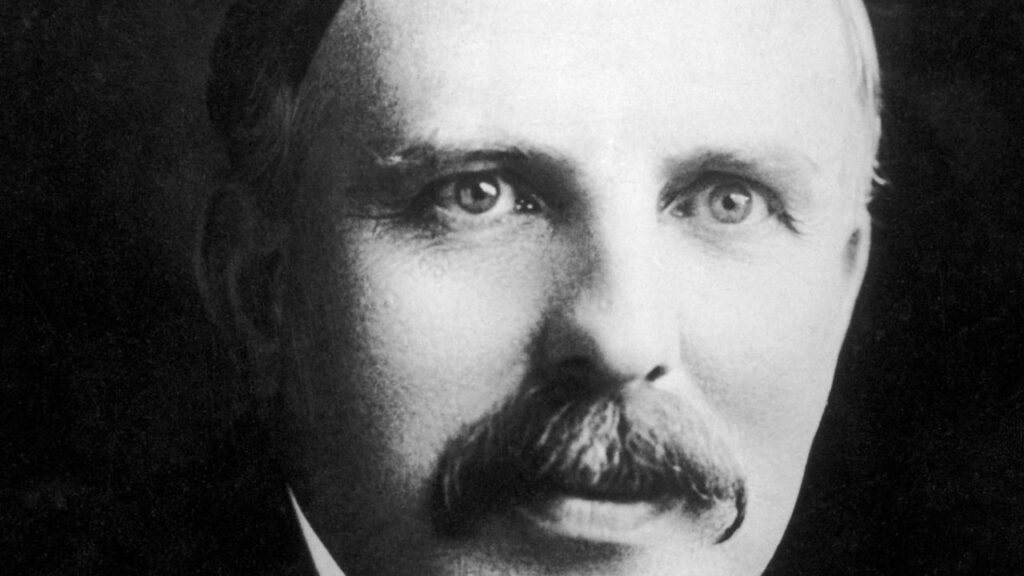
Ernest Rutherford, a New Zealand-born British physicist, made significant contributions to the understanding of atomic structure during the early 20th century. Through his famous gold foil experiment, Rutherford discovered that the atom has a small, dense, positively charged nucleus at its center. This discovery revolutionized our understanding of atomic physics and laid the groundwork for later advancements in nuclear physics.
DNA’s structure I helped unfold,
A crystallographer, strong and bold.
My work essential, yet often unseen,
Name this scientist, with discoveries keen.
Rosalind Franklin (1920-1958):
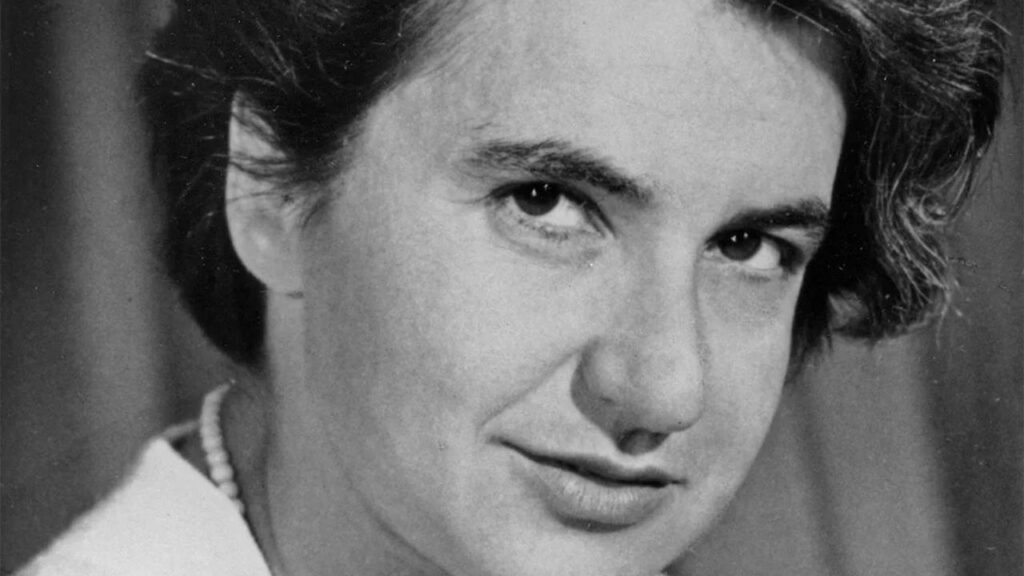
Rosalind Franklin, a British chemist and crystallographer, made crucial contributions to the discovery of the structure of DNA. In the early 1950s, Franklin produced X-ray diffraction images of DNA fibers that provided critical insights into its double helix structure. Although her work was instrumental, it was only after her death that James Watson, Francis Crick, and Maurice Wilkins used her data to propose the correct structure of DNA.
Double helix structure, the blueprint of life,
Cracking the code amidst scientific strife.
Together with Watson, a legendary duo,
Solve this riddle, who are we, do you know?
Francis Crick and James Watson

Francis Crick (1916-2004):
Francis Crick, a British molecular biologist, is credited, along with James Watson, with discovering the structure of DNA. In 1953, Crick and Watson proposed the double helix model for the structure of DNA, based on their analysis of available data, including the work of Rosalind Franklin. This breakthrough laid the foundation for our understanding of the molecular basis of genetic information and the mechanisms of DNA replication and protein synthesis.
James Watson (1928-present):
James Watson, an American molecular biologist, made significant contributions to the discovery of the structure of DNA. Alongside Francis Crick, Watson played a key role in proposing the double helix structure of DNA in 1953. Their groundbreaking work unlocked the secrets of genetic information and revolutionized the fields of molecular biology and genetics.
Binomial nomenclature, species’ names I gave,
Classifying life, my task so brave.
The father of taxonomy, my legacy remains,
Name this scientist who broke nature’s chains.
Carl Linnaeus (1707-1778):
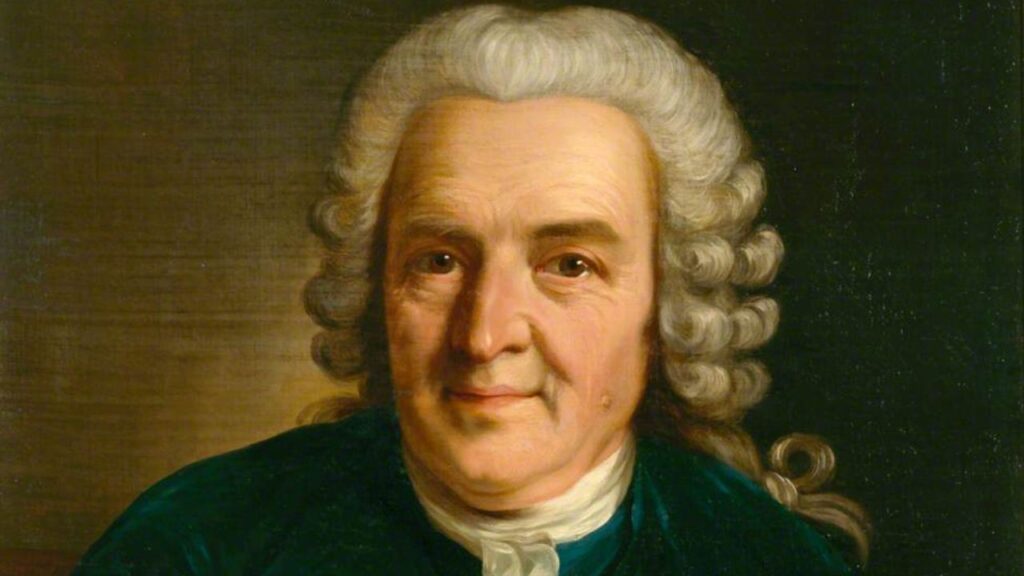
Carl Linnaeus, a Swedish botanist, physician, and zoologist, made significant contributions to taxonomy during the 18th century. Linnaeus developed the binomial nomenclature system, which standardized the naming and classification of organisms. His system, based on hierarchical categories, provided a universal framework for categorizing and organizing the diversity of life on Earth, forming the basis of modern biological classification.
Uncertainty principle, quantum’s decree,
The observer effect, it all starts with me.
The father of quantum mechanics, renowned and grand,
Solve this riddle, take a stand.
Werner Heisenberg (1901-1976):
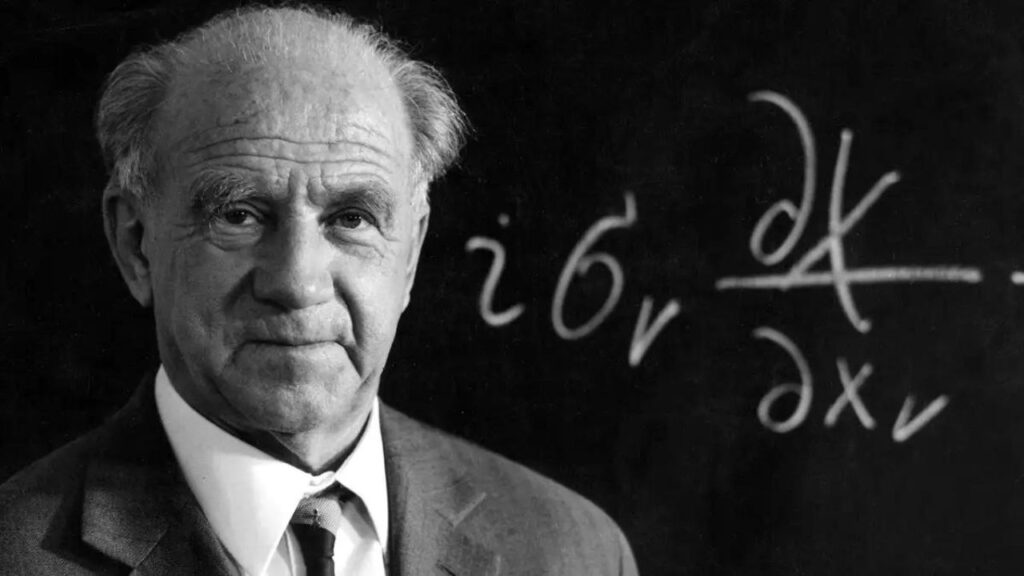
Werner Heisenberg, a German theoretical physicist, played a central role in the development of quantum mechanics during the early 20th century. Heisenberg formulated the uncertainty principle, which states that there are inherent limits to simultaneously measuring certain properties of subatomic particles, such as position and momentum. His work revolutionized our understanding of the behavior of particles at the quantum level and had a profound impact on the field of physics.
Atomic model, electrons in flight,
Quantum leaps and Copenhagen’s light.
A pioneer of atomic theory, you see,
Name this physicist, who can it be?
Niels Bohr (1885-1962):

Niels Bohr, a Danish physicist, made significant contributions to the development of quantum theory during the early 20th century. Bohr proposed the Bohr model of the atom, which incorporated the principles of quantum mechanics and explained the behavior of electrons in atoms. His work laid the foundation for our understanding of atomic structure and led to advancements in nuclear physics and quantum mechanics.
Periodic table, elements aligned,
Predicting properties, my task defined.
From hydrogen to uranium, rows and columns arranged,
Solve this riddle, my name uncovered and unchanged.
Dmitri Mendeleev (1834-1907):

Dmitri Mendeleev, a Russian chemist, is credited with creating the periodic table of elements. In 1869, Mendeleev organized the known elements based on their properties and patterns, leaving gaps for yet-to-be-discovered elements. His periodic table provided a systematic framework for understanding and predicting the properties of elements, revolutionizing the field of chemistry.
Quantum of energy, a revolutionary plan,
Laying the foundation for quantum’s span.
The Nobel laureate, my fame did soar,
Solve this riddle, reveal my name and more.
Max Planck (1858-1947):

Max Planck, a German physicist, is considered the founder of quantum theory. In 1900, Planck introduced the concept of energy quantization, postulating that energy is emitted and absorbed in discrete packets called quanta. This revolutionary idea laid the groundwork for understanding the behavior of atoms and subatomic particles and marked the birth of quantum mechanics.
Dreams and desires, the unconscious mind,
Psychoanalysis, my theories unwind.
Id, ego, superego, concepts I explained,
Name this psychologist, my identity retained.
Sigmund Freud (1856-1939):
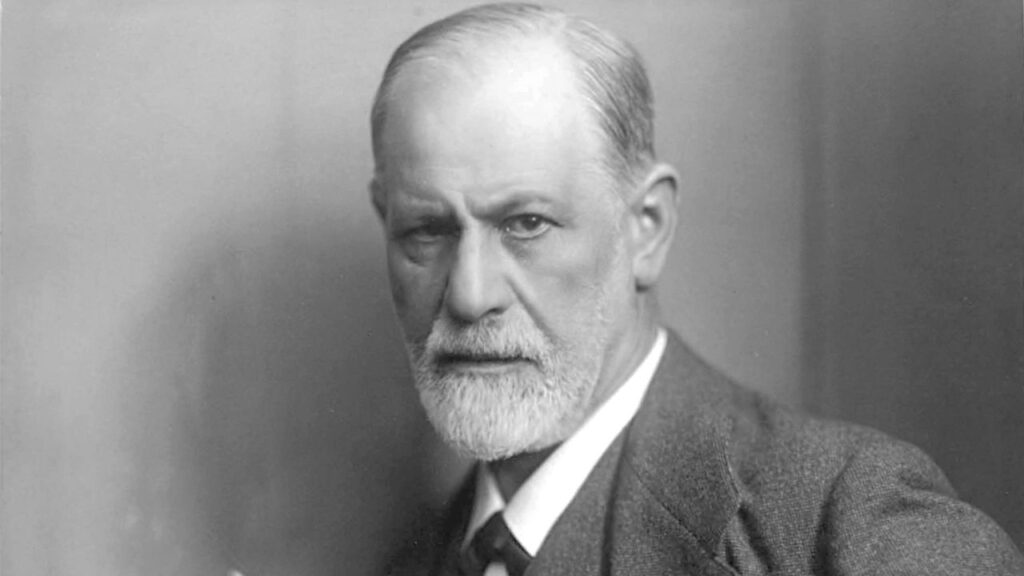
Sigmund Freud, an Austrian neurologist and the founder of psychoanalysis, revolutionized our understanding of the human mind. Freud proposed a comprehensive theory of the unconscious mind and its influence on human behavior, providing insights into the workings of the human psyche. His ideas about the id, ego, and superego, as well as his exploration of dreams and the interpretation of symbols, had a profound impact on psychology and psychiatry.
Chimpanzees’ world, I ventured to explore,
Observing their behavior, the wild encore.
A primatologist and advocate for the wild,
Solve this riddle, leave no question defiled.
Jane Goodall (1934-present):

Jane Goodall, a British primatologist and anthropologist, is renowned for her extensive research on chimpanzees. Goodall conducted groundbreaking studies in Gombe Stream National Park, Tanzania, during the 1960s, observing chimpanzee behavior in their natural habitat. Her research provided valuable insights into primate behavior, social structures, and our understanding of human evolution. Goodall’s work has also focused on conservation and raising awareness about environmental issues.
Silent Spring, a voice for the Earth,
Pioneering environmentalist from birth.
DDT’s impact, ecology’s call,
Name this scientist, standing tall.
Rachel Carson (1907-1964):

Rachel Carson, an American marine biologist and conservationist, played a pivotal role in the modern environmental movement. In her influential book “Silent Spring,” published in 1962, Carson raised concerns about the environmental impacts of pesticides, particularly DDT. Her work highlighted the detrimental effects of pesticides on ecosystems, birds, and human health, leading to increased awareness about the importance of environmental conservation and the need for sustainable practices.
Theoretical physicist, my mind soared high,
Black holes and relativity, reaching for the sky.
A voice for science, with brilliance untold,
Solve this riddle, who broke the mold?
Stephen Hawking (1942-2018):

Stephen Hawking, a British theoretical physicist, made groundbreaking contributions to our understanding of black holes, the nature of time, and the origins of the universe. Despite being diagnosed with a motor neuron disease, Hawking made significant theoretical advances in cosmology and quantum gravity. His popular science books, such as “A Brief History of Time,” made complex scientific concepts accessible to a wider audience, inspiring countless individuals to pursue an interest in science.
Cosmos and wonders, the universe’s grace,
A scientist and communicator, with a smile on my face.
Exploring the cosmos, stars’ brilliant spree,
Solve this riddle, and you’ll find me.
Carl Sagan (1934-1996):

Carl Sagan, an American astronomer, astrophysicist, and science communicator, played a vital role in popularizing science and increasing public interest in astronomy and space exploration. Sagan hosted the television series “Cosmos: A Personal Voyage,” which became one of the most widely watched science programs in history. He made significant contributions to planetary science, exobiology, and the search for extraterrestrial life. Sagan’s ability to communicate complex scientific concepts with clarity and enthusiasm continues to inspire generations to explore the wonders of the universe.












